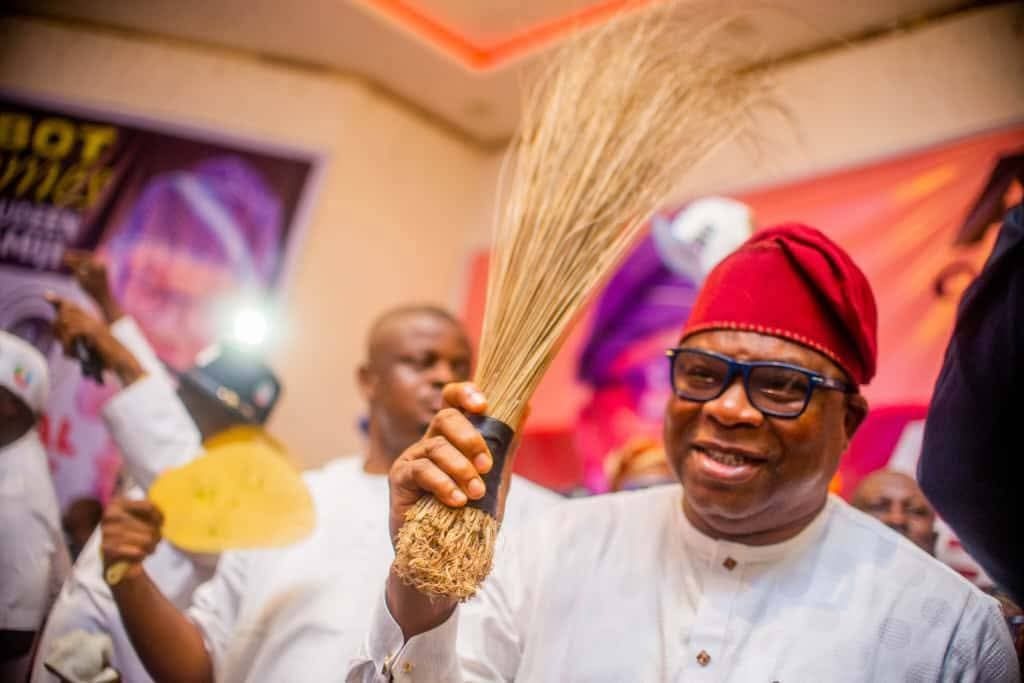
Sir: Over the past year, I have followed Nasir El-Rufai’s political theatrics with a mix of morbid curiosity and intellectual disquiet. Not out of admiration—his legacies, most especially as Kaduna’s polarising governor and enabler of the Buhari administration’s most draconian policies preclude that—but to observe how a man once ensconced in Nigeria’s innermost corridors of power would navigate life as an insider cast adrift.
Nigerian politicians, notoriously allergic to irrelevance, often crumble when stripped of influence. El-Rufai, however, has chosen a different script: reinvention as a “principled opposition leader,” railing against the very system he helped construct. Yet, behind the media blitz and performative outrage lies a far simpler truth: El-Rufai’s politics has never been about ideology or nation-building. It is, and always has been, about El-Rufai!
When news broke in early March 2025 of his defection from the All Progressives Congress (APC) to the Social Democratic Party (SDP), few were surprised. For months, El-Rufai had telegraphed his move through a calculated crescendo of media appearances—lambasting President Bola Tinubu’s “betrayals,” lamenting the APC’s “moral decay,” and positioning himself as a martyr of political witch-hunts.
To the undiscerning, it seemed a bold stand against a faltering administration. But to those familiar with El-Rufai’s playbook, it was déjà vu: the same man who abandoned the PDP in 2009, the CPC in 2013, and now the APC, was merely recycling his oldest trick—party-hopping as performance art.
Here was a man who, as Kaduna governor, weaponised state power to demolish churches, sideline minorities, and shield Fulani militias from accountability, now posturing as a defender of democracy.
El-Rufai’s lamentations of “ostracisation” ring hollow because they are. His rift with Tinubu stems not from principled dissent but from personal grievance—the denial of a ministerial appointment after the Senate rejected him over allegations tied to his Kaduna tenure. This is not a man seeking to unseat Tinubu for Nigeria’s sake, but one scrambling to reclaim relevance after miscalculating his indispensability.
Is El-Rufai truly an opposition leader, or merely a displaced opportunist raging against his own obsolescence?
El-Rufai, the former governor of Kaduna State, embodies the paradox of Nigerian politics—a self-styled technocrat whose legacy is etched in the scars of ethno-religious division. To his admirers, he is a bold moderniser, a Harvard-trained reformer who championed privatisation and urban renewal. To his detractors, he is a Machiavellian opportunist whose policies and rhetoric have deepened Nigeria’s most dangerous fault lines.
Born in 1960 in Daudawa, Katsina State, El-Rufai’s worldview was shaped by Northern Nigeria’s conservative Islamic ethos. A gifted student, he ascended through elite academic circles, earning a law degree and a Harvard MBA—credentials that later became pillars of his “apolitical technocrat” persona.
His early career under former President Olusegun Obasanjo, first as privatisation czar and later as Federal Capital Territory (FCT) minister, foreshadowed a pattern of ruthless pragmatism. As FCT minister, he ordered the bulldozing of “illegal” settlements, displacing over 800,000 predominantly poor residents. Critics decried the act as elitist tyranny; El-Rufai hailed it as necessary urbanisation. This duality—destruction framed as development—would become a hallmark of his governance.
Agbeze Ireke Kalu Onuma can be reached via [email protected]






